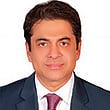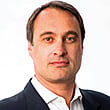Infrastructure funds slowly go mainstream in Gulf
of $85 billion allocated to infrastructure funds globally
Dubai: Cash-rich GCC sovereign wealth funds and institutions are increasingly looking at alternative investments to navigate the market environment fraught with risks.
The nature of infrastructure funds, which are non-correlated to other asset classes and defensive, has seen private money guzzling into the theme that invests in essential public services such as road, railways, bridges among others.
Infrastructure is gradually gaining importance as a mainstream investment theme in the region.

In 2018, a record of $85 billion (Dh312 billion) was allocated to infrastructure funds globally, up $10 billion from the year before figure, according to data from Preqin. Analysts suggest that by 2040, about $95 trillion will have to be spent on infrastructure projects, which is expected to be pre-dominantly funded by private investors.
“We continue to see strong interest in infrastructure investing from regional institutions. Allocations to global infrastructure are forming an increased part of asset allocation models,” Sudhanshu Garg, institutional Director AMP Capital Investors (UK) Ltd told Gulf News.
Giving details on one of its fund, called as AMP Capital Infrastructure Debt Fund III that was closed in 2017, the fund reached its $2.5 billion in collection and also secured $1.6 billion in additional commitments from investors.
Infrastructure assets’ performance are typically robust and stable throughout economic cycles given their essential nature.

“The response to IDF III was striking, with more than 125 investors from 12 countries investing in the fund. The strong demand from investors for exposure to infrastructure debt — with the right manager — was evident,” Garg said. “Infrastructure is gradually gaining importance as a mainstream investment theme in the region. We are currently seeing a healthy diversification trend which is helping allocations to the asset class,” he added.
However, AMP Capital is far away from investing in infrastructure projects in the region.
The objective of opening an office in 2017 was “for not only being close to the institutional investors but also keeping an eye on local opportunities that could fit into the strategy of our funds. The infrastructure market in the UAE, KSA are not only expanding but also undergoing structural changes as we see more PPP [Public Private partnership] projects coming up,” Garg said.
In the UAE, most of the funding come from the government. The UAE government is expected to invest Dh1.3 trillion in infrastructure development over the next decade.
Attractive:
Fears of a global slowdown and the ever increasing need for diversification has resulted in investors gaining traction with this asset class.
“Infrastructure assets’ performance are typically robust and stable throughout economic cycles given their essential nature, and are therefore considered a defensive investment. The trend of investors shifting their allocations from public markets to private markets looks set to increase in this environment,” Simon Ellis, Partner, Head of Origination, Infrastructure Equity, AMP Capital Investors said.
Going ahead, the outlook is positive for the asset class.
“We expect 2019 to be another positive year for AMP Capital in the region as investors seek to increase their exposure to infrastructure, and our teams continue to find attractive investment opportunities,” Garg said.


